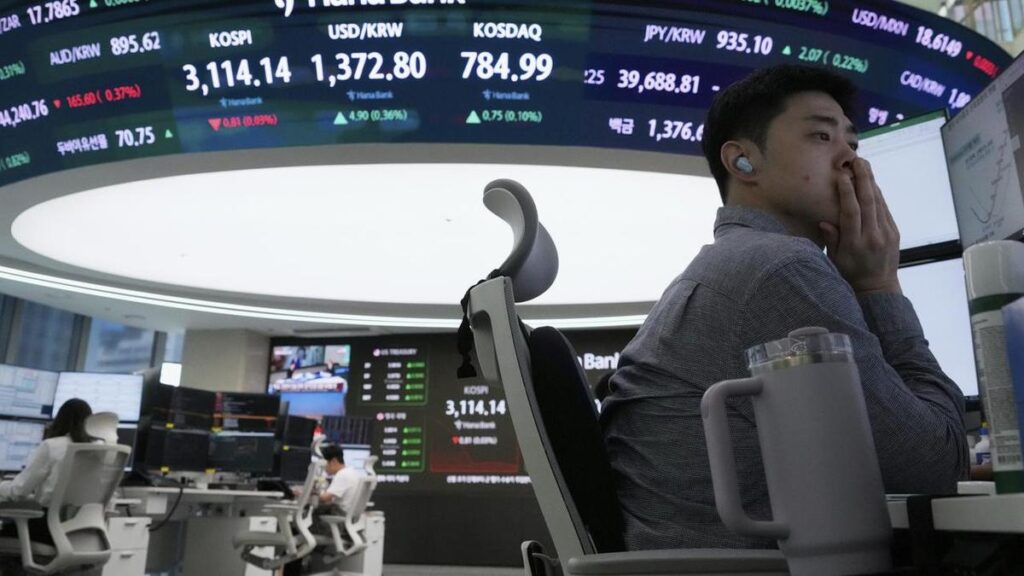
Investors are responding to recent statements from US President Donald Trump regarding potential new trade tariffs, leading to mixed results in Asian share markets while the US dollar remains resilient. The ongoing trade negotiations continue to shape market sentiment, causing fluctuations in investor confidence across the region.
Market Reactions to Trade Developments
As of September 20, 2023, major indices across Asia displayed a blend of gains and losses. For instance, Japan’s Topix index moved up slightly by 0.2%, while Australia’s S&P/ASX 200 saw a decline of 0.4%. In South Korea, the KOSPI Index experienced a modest increase of 0.3%. This divergence reflects the varying levels of investor optimism influenced by Trump’s recent remarks.
The dollar’s strength is attributed to its status as a safe-haven currency amid ongoing uncertainties in global trade dynamics. The currency’s performance has been steady, with the US dollar index rising by 0.5% against a basket of other major currencies. This trend indicates that investors are gravitating towards the dollar as they assess the implications of potential tariffs.
Implications for Global Trade
Trump’s comments suggest that the administration is contemplating additional tariffs on imports from certain countries, which could further complicate international trade relations. Market analysts note that such measures may exacerbate existing tensions and lead to retaliatory actions, impacting global economic stability.
According to financial experts, the uncertainty surrounding trade policies has significant implications for supply chains and manufacturing sectors worldwide. Investors are advised to closely monitor developments as they could affect market volatility in the coming weeks.
The mixed performance of Asian markets reflects a broader caution among investors who are weighing the potential repercussions of new tariffs. As economic data continues to emerge, traders are likely to adjust their strategies in response to evolving trade conditions.
In conclusion, the interplay between Trump’s trade policies and global market reactions highlights the complexities of international commerce. As the situation develops, the resilience of the dollar and the mixed performance of Asian shares will remain crucial indicators of market sentiment and economic health.






